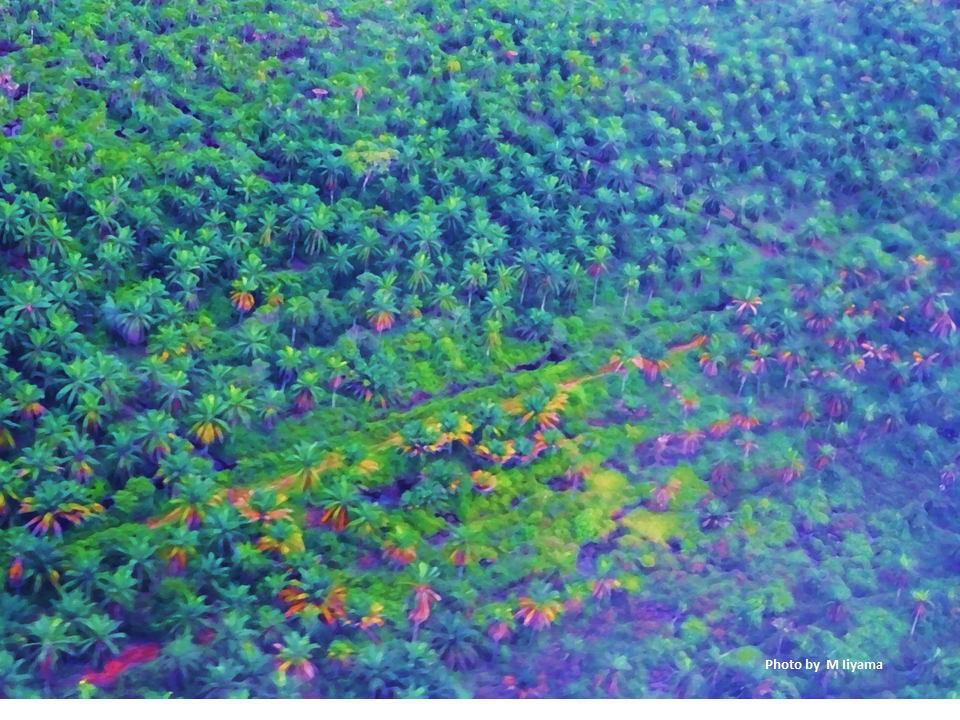Pick Up
1172. Transforming Land Management to Stay within Planetary Boundaries

1172. Transforming Land Management to Stay within Planetary Boundaries
Land that regulates the climate, protects biodiversity, maintains freshwater systems, and provides life-nourishing resources such as food, water, and raw materials is the foundation for maintaining a stable Earth system. Deforestation, urbanization, and unsustainable agriculture are causing global land degradation on an unprecedented scale, threatening not only the global system but also human survival.
Late last year, under the leadership of Prof. Dr. Johan Rockström at the Potsdam Institute for Climate Impact Research (PIK), the UN Convention to Combat Desertification (UNCCD) launched a report, titled, ‘Stepping back from the precipice: Transforming land management to stay within planetary boundaries’.
According to the report, conventional agriculture contributes to deforestation, soil erosion, and pollution, making it a major contributor to land degradation. Unsustainable irrigation practices deplete freshwater resources, and excessive use of fertilizers such as nitrogen and phosphorus destabilizes ecosystems. Degraded soil reduces crop yields and nutritional value, which directly affects the livelihoods of vulnerable populations. In addition, it increases the dependence on chemical inputs and encourage land conversion for agricultural expansion.
Today, hotspots for land degradation stem from over-reliance on intensive agricultural production and irrigation, especially in arid regions such as South Asia, northern China, the plains of the United States, California, and the Mediterranean. Climate change has already exceeded the limits of the planet and is accelerating the degradation of the land. In addition, rapid urbanization is accompanied by habitat destruction, pollution, and loss of biodiversity.
The impacts of land degradation have disproportionately impacted low-income countries in the tropics and arid regions, and women, youth, indigenous peoples, and communities are bearing the brunt of environmental degradation. Weak governance and corruption encourage illegal deforestation and resource exploitation, perpetuating a vicious cycle of land degradation and inequality.
In order to return to a safe area of activity where humans can survive at planetary boundaries, we need to implement transformative actions to halt land degradation.
First, improving reforestation, no-till farming, nutrient management, grazing, water conservation and harvesting, efficient irrigation, intercropping, organic fertilizers, and the use of compost and biochar are expected to increase soil carbon storage and improve yields. A more efficient supply of chemical fertilizers is equally essential. Currently, only 46% of nitrogen and 66% of phosphorus applied as fertilizer are taken up by crops, and the rest flows into freshwater bodies and coastal areas, causing serious environmental consequences. New technologies combined with big data and artificial intelligence have enabled innovations such as precision agriculture, remote sensing, and drones that detect and respond to land degradation in real-time. Similarly, benefits can be derived from precise application of water, nutrients, and pesticides, as well as early detection of pests and diseases.
In designing these transformative actions, we need to ensure that benefits and burdens are fairly distributed, based on the principles of fairness and justice. This requires stronger land governance, formalization of land ownership, and greater transparency of companies around their environmental impacts.
Reference
Tomalka, J., Hunecke, C., Murken, L., Heckmann, T., Cronauer, C. C., Becker, R., Collignon, Q., Collins-Sowah, P. A., Crawford, M., Gloy, N., Hampf, A., Lotze-Campen, H., Malevolti, G., Maskell, G. M., Müller, C., Popp, A., Vodounhessi, M., Gornott, C., & Rockström, J.(2024). Stepping back from the precipice: Transforming land management to stay within planetary boundaries. Potsdam, Germany: Potsdam Institute for Climate Impact Research.: https://publications.pik-potsdam.de/pubman/item/item_30631
Contributor: IIYAMA Miyuki, Information Program
